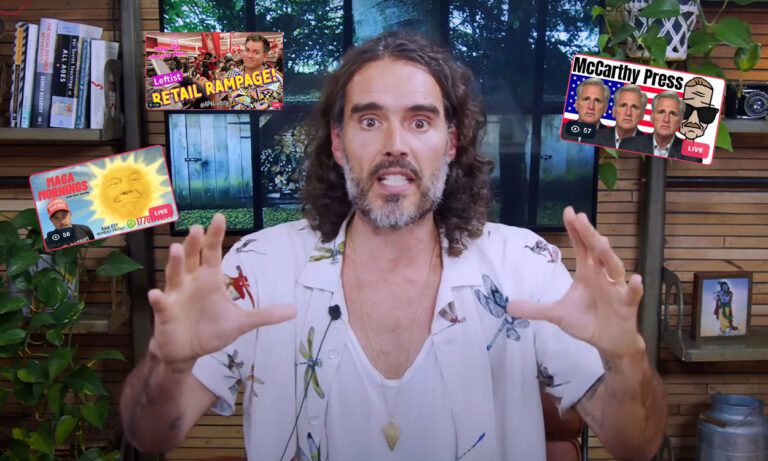What is Rumble, the YouTube copycat home to problematic men like Russell Brand and Andrew Tate?

Comedian Russell Brand is currently facing a slew of allegations encompassing rape, sexual assault, and emotional abuse from multiple women. These accusations have not only prompted an investigation by the Metropolitan Police but have also led to inquiries by the comedian’s former employers, including Channel 4 and the BBC.
But where YouTube decided to demonetise Brand’s videos on the popular video-sharing platform, another one, with a slightly more controversial background, called Rumble took no action against the problematic 48-year-old. Only certain companies, like Burger King, temporarily halted their advertising on Brand’s Rumble channel while investigations into the claims are ongoing.
Why is Russell Brand on Rumble?
Remarkably, Brand remains accessible on the alternative video-sharing platform known as Rumble, despite the severity of these allegations. Rumble is a platform that tends to attract creators with more right-wing perspectives. With his content being notable for promoting controversial views such as his alignment with right-leaning ideologies, it’s no surprise why Brand’s channel on Rumble has 1.65 million followers.
It’s about section reads: “Everybody knows that the old ideas won’t help us. Religion is dead. Capitalism is dead. Communism is dead. Where will the answers of the next century lie? Particularly, when we’re facing a mental health epidemic and ecological meltdown.”
What is Rumble?
Founded in 2013 by Canadian technology entrepreneur Chris Pavlovski, Rumble positions itself as an alternative video-sharing platform to YouTube and also offers web hosting and cloud services. Over the years, the social media app has garnered support from prominent figures such as billionaire conservative venture capitalist Peter Thiel, who invested in the platform in 2021, and former Fox News presenter Dan Bongino, who boasts a substantial following on the platform. According to Bloomberg, the right-wing hub is currently valued at over $2 billion.
Even Rumble’s user interface bears similarities to the well-established YouTube, which was launched in 2005. That being said, the two platforms differ significantly in their approaches to monetisation, algorithms, and content restrictions.
Rumble has cultivated a public image of being an “open platform” where content creators are encouraged to express themselves without the fear of censorship or exposure to hate speech. Consequently, it has attracted many right-wing content creators who have transitioned from YouTube, which has much more restrictive policies. In fact, right-wing commentator Candace Owens was recently suspended from YouTube for hate speech violations.
Notable figures who’ve switched allegiance include Andrew Tate, political commentator Ben Shapiro, and former US President Donald Trump.
Who watches Rumble?
Shortly after Trump lost the 2020 election, Rumble’s popularity soared, with its monthly users growing from two million to more than 20 million at the end of that year, according to Forbes. As of 2022, Rumble has a reported 78 million active users globally. While it was not created primarily for news consumption, for some, it has become a major source of information.
Interestingly, Rumble faced a ban in France in November 2022 after the platform refused to comply with the French government’s demand to remove Russian state media accounts following the Ukraine invasion.
Despite the demonetisation of his YouTube account, Brand continues to generate income through his posts on Rumble. Clearly, the allegations haven’t bothered the conservatives online.





